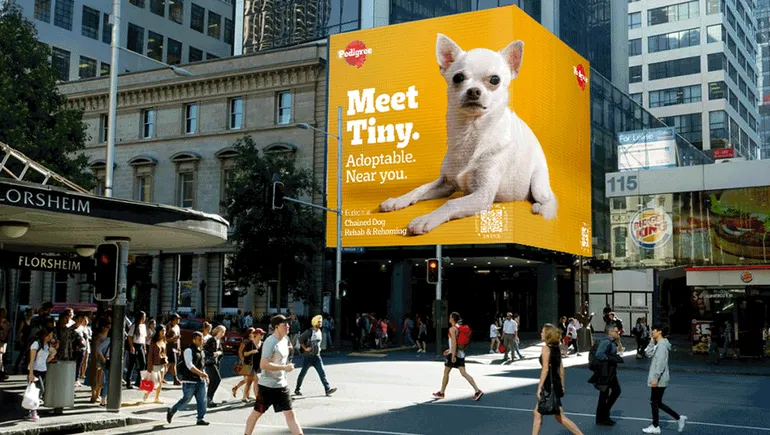
What's next for advertisers as Google changes course again on cookie alternatives
For the third time, the new year means new plans for Google as it continues to alter its plan to phase out third-party cookies in Chrome. On Jan. 25, the tech giant introduced a new Privacy Sandbox proposal called Topics that will replace Federated Learning of Cohorts (FLoC) — exactly a year after putting its weight behind the proposal.
While Google promised that FLoC would deliver at least 95% of the conversions per dollar spent that advertisers get with cookie-based advertising, many players in the ad world doubted those claims and wondered if FLoC would ever fully take off. Despite those concerns, the replacement of FLoC with Topics represents yet another complication as advertisers continue to figure out what the cookieless future will actually look like.
“The industry has been through a lot of whiplash around identifiers, cohorts and cookies,” said Sheri Bachstein, GM of IBM Watson Advertising and CEO of The Weather Company, in emailed comments. “The devil will be in the details but on the surface, Topics seems to most closely reflect contextual advertising which has been around for some time,” Bachstein said. “While that approach has value, the marketing and advertising industry is looking for more innovation.”
The challenges of Topics
Instead of putting anonymized users in cohorts based on interests, a user’s browser will determine a handful of topics that correspond to the user’s top interests for the week based on browsing history. The topics are kept for only three weeks and are then deleted, and are only stored locally. When visiting a site, Topics choses one topic from each of the past three weeks to share with the site and its ad partners. While doing more to protect user privacy, Topics might not do enough to serve advertiser needs.
“The evolution of FLoC to Topics API is indicative of the challenge the industry is facing on identity: respect consumer preferences and create a better value exchange, while mitigating and maintaining advertiser and publisher relevance and reach,” Yahoo chief business officer Iván Markman said in emailed comments.
As for those consumer preferences, Google will allow users to see and remove topics or disable the feature completely. If opt-in rates are similarly low to those seen after Apple’s recent iOS privacy update, the lack of data will be painful for large brands and potentially fatal for small ones — which may lead Google to kill off Topics, as well, said Emad Hasan, CEO of customer intelligence platform Retina AI, in emailed comments.
“It’s possible that Google will try to require that consumers opt in to sharing their data to use Chrome, but the uncertainty will have dramatic effects on marketers and brand’s advertising strategy,” he said.
“With FLoC, Google was trying to ensure their continued dominance in the advertising space, and both consumers and the ad industry responded with a resounding no.”
Wayne Coburn
Director of product, Iterable
While FLoC was already less precise than third-party retargeting or deterministic targeting, Topics is expected to be even less precise. The Topics API utilizes website host names rather than sub-interest pages, and classifies users across only 350 categories.
“We know that content alone does not provide the level of accuracy that the combination of contextual and real-time data signals offers,” Markman said. “We believe that the industry will need greater granularity and alignment with user relevance.”
The technology underpinning the Topics API also adds another wrinkle to the privacy landscape. While eliminating the need for individual FLoC IDs, Topics requires a taxonomy lookup table that will need to be created and managed by a third party, adding additional issues around ownership and bias.
“The most important question is who will be responsible for mapping topics to a page, an algorithm or the publishers themselves? The answer to this is absolutely critical before we can enter any kind of meaningful testing phase,” said Łukasz Włodarczyk, vice president of programmatic ecosystem growth and innovation at martech firm RTB House, in emailed comments.
Lessons learned
Google’s replacement of FLoC with Topics signals how the company is listening (or not) to consumers and ad world players, and how balancing contrary imperatives around privacy and personalization is shaping the development of post-cookie ad targeting.
“Google’s pivot — from FloC to Topics — shows that consumers have lobbying power and a voice they are not afraid to use. People understand that their data is valuable, and they are moving to preserve the value of their assets,” said Wayne Coburn, director of product at marketing platform Iterable, in emailed comments. “With FLoC, Google was trying to ensure their continued dominance in the advertising space, and both consumers and the ad industry responded with a resounding no. With Topics, Google is admitting they need to do more to preserve and protect consumer privacy.”
It remains to be seen whether Topics will be enough to satisfy various stakeholders, or even workable, considering it represents a high-level change that comes just months before publishers and the ad industry are tentatively scheduled to begin migrating services at the end of 2022 and before a three-month cookie phaseout set to finish in late 2023. Google first announced it would block third-party cookies in January 2020, introduced its FLoC proposal in January 2021 and changed its original timetable regarding the demise of third-party cookies last summer.
Meanwhile, Google is still facing antitrust pressure about its Privacy Sandbox proposals, with German publishers and advertisers joining the chorus of voices asking regulators to stop Google from blocking third-party cookies all together. Plus, the ad industry has started to coalesce around other solutions, like The Trade Desk’s Unified ID 2.0, that have started to deliver for consumers and marketers, Retina AI’s Hasan noted.
“Expecting Google to craft a robust and neutral Internet privacy policy is like asking Al Capone to write the tax code.”

Eric Schmitt
Analyst, Gartner
It’s unclear if growing pressures will force Google to stick to the schedule, or if continued uncertainty could lead to other delays of the third-party cookie phaseout. Cookies only affect in-browser advertising — not paid search, social media, streaming audio and video or connected TV, giving marketers the opportunity to recalibrate and re-prioritize these other channels. Other players won’t be as lucky.
“The point is that not to lose the advertising forest for the ‘open web’ programmatic tree, and to keep in mind that independent ad tech tools like DMPs, DSPs, data, identity and attribution vendors are likely to bear the brunt of the fallout when cookies disappear from the bidstream,” Gartner analyst Eric Schmitt said in emailed comments.
In the end, Google still generates a wealth of ad sales from its other properties, including search and YouTube, some of which utilize first-party data generated from Gmail. So whatever shape the cookieless future takes, Google is likely to emerge even stronger.
“Bottom line, expecting Google to craft a robust and neutral Internet privacy policy is like asking Al Capone to write the tax code,” Schmitt said.





